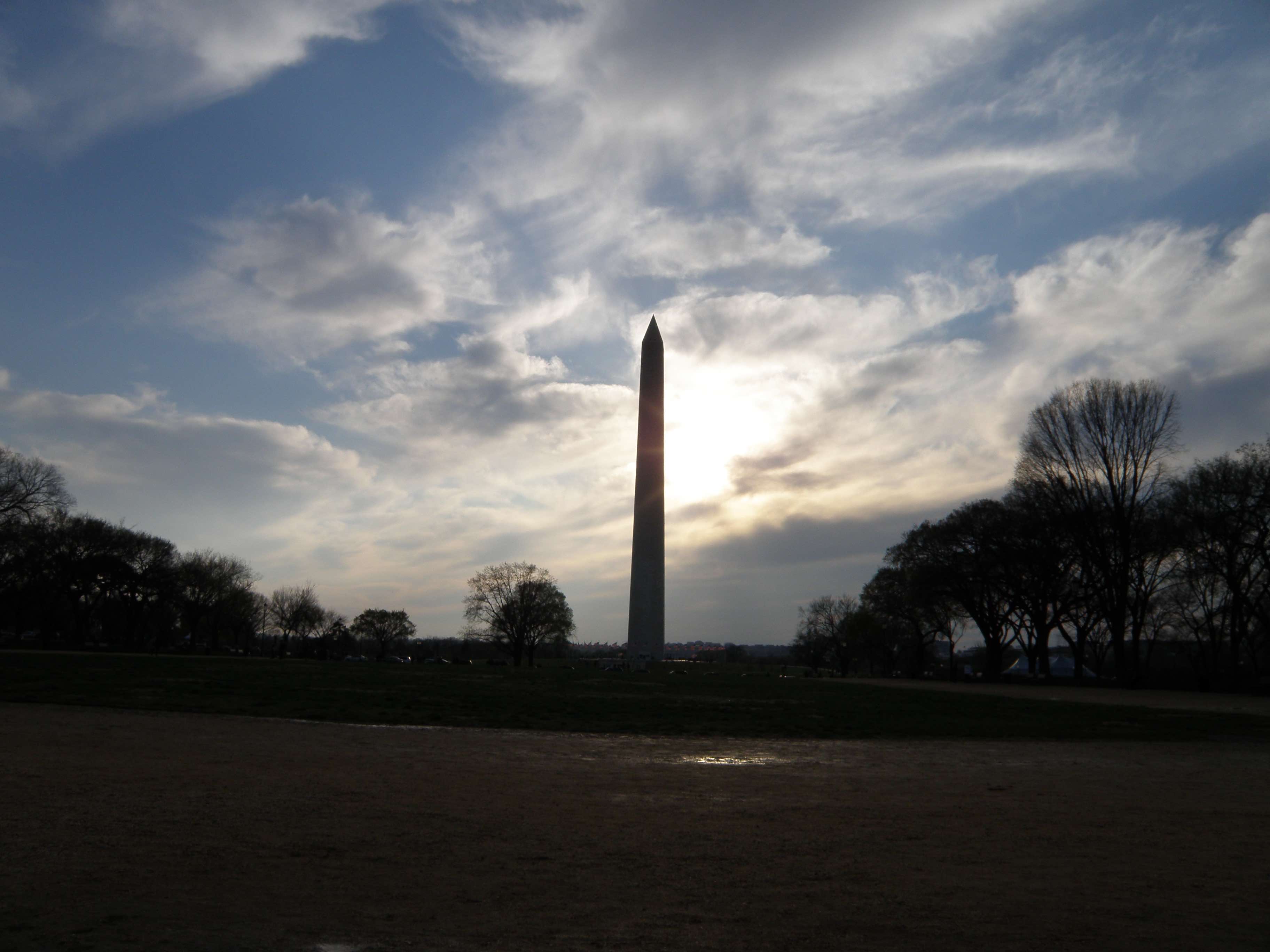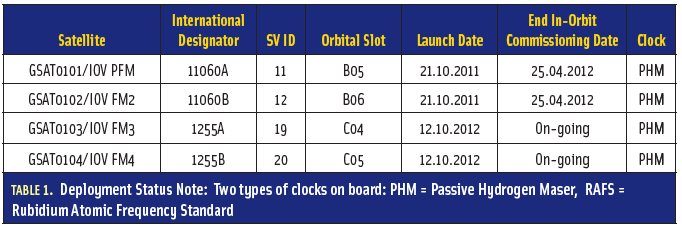The Federal Communications Commission ignored a technical standard defining radio-frequency interference. The five commissioners licensed powerful terrestrial broadcast next to the satellite band, exposing national defense and critical infrastructure to harm.
An April 20 decision by the Federal Communications Commission in favor of a Ligado Networks proposal means that GPS will be exposed to harmful interference transmitted from powerful broadcast towers densely distributed across the country.
The FCC ignored the widely accepted standard of interference measurement that has protected GPS users around the world for years. It opted instead for a weaker and heretoforee little-recognized measurement of “acceptable” interference.
In the FCC’s view, GPS receivers in the United States can now be subject to interference up to the point where they deliver inaccurate results. Users—and critical infrastructures—are then left to their own devices, with no clear recourse.
The Departments of Defense and Transportation immediately announced their opposition to the ruling. Seven other agencies as well as senior members of Congress strongly oppose the FCC’s determination.
To preempt challenges, Ligado plans to deploy quickly on existing infrastructure.
Stealth
The decision came at the conclusion of a long weekend of surreptitious maneuvering. FCC Chairman Ajit Pai announced on a Thursday, when Congress was out of town and most of government was scrambling to contain the coronavirus pandemic, that he had circulated his draft decision to the other four commissioners. Two of them communicated their intention to go along by the end of Friday. A unanimous decision was announced on Monday.
The matter has a long history, dating back to 2010 and even earlier. Ligado proposed to shift its frequency licenses in the satellite services band to apply to terrestrial broadband communications. A decade’s worth of testing has consistently shown that re-purposing satellite frequencies near the GPS band for on-the-ground communication networks interferes with GPS receivers.
Broadcast Till You Break It
GPS is a National Critical Function identified by the Department of Homeland Security as essential to 13 of the nation’s 16 critical infrastructure sectors, including transportation, communications and financial networks. It also forms an integral and critical tactical resource, interwoven into nearly every military platform and weapon across all branches of the U.S. military.
The globally accepted standard for protecting GPS is a one-decibel (1 dB) degradation of C/N0, the carrier-to-noise power density ratio, also called an Interference Protection Criterion (IPC). Radio spectrum specialists around the world use the IPC to determine how much signal noise can be added without disabling receivers on any given frequency.
The C/N0 approach includes a small margin to allow for natural fluctuations in the system and for signal reception challenges such as heavy tree canopy.
GPS receivers do not gradually degrade in the face of serious interference. They give accurate position information until they simply fail at the point where the interference causes them to lose their lock on the satellites, said Logan Scott, a GPS signal expert and radio frequency consultant.
Substituting position error for C/N0 degradation effectively eliminates any safety margin.
“GPS is very much a safety-of-life system,” he said. “Margins are important. You don’t want to use the margin up.”
The margin of safety afforded by the 1 db IPC will largely disappear under the new order established by the FCC’s decision.
Role
In just a few examples of GPS’ role in safety-of-life systems, positive train control uses GPS to help prevent collisions between moving trains and protect those working alongside the tracks. GPS-based geofencing keeps more than 1.5 million registered drones in the United States away from airports and collisions with manned aircraft. All aircraft, from 747s to small private planes, rely on GPS receivers for navigation and safe landings.
In other sectors of critical national infrastructure, the precise timing furnished by GPS manages the electrical grid and complex financial transactions conducted by the stock market. What pandemonium might ensue were such timing to be disrupted has not been envisaged.
Decision
“In determining whether a new service would cause harmful interference to an incumbent service,” the FCC wrote, “we begin with and rely on the Commission’s long-standing definition embodied in our rules: ‘harmful interference’ is ‘[i]nterference which endangers the functioning of a radionavigation service or of other safety services or seriously degrades, obstructs, or repeatedly interrupts a radiocommunication service operating in accordance with [the ITU] Radio Regulations.’ We apply this definition for evaluating potential for interference with respect to all services and allocations, including those associated with RNSS in the 1559–1610 MHz band where GPS operates.”
The FCC claimed that the tests done by the government and Ligado showed that the “1 dB C/N0 degradation metric does not assess whether the actual performance of the GPS devices is affected and, accordingly, does not directly address whether there would be any ‘harmful interference’ as defined by the Commission.”
“As defined by the Commission.” The board of FCC commissioners consists of four lawyers and a policy analyst. Engineers are on staff, but to what extent their opinions are heeded by the board is not known.
“After examining the record on testing, including the methodologies used for purposes of protecting GPS devices from potential harmful interference, we conclude that our evaluation of the receiver test data presented in the record will rely on performance-based metrics, and not on testing based on application of a 1 dB C/N0 degradation as a measurand employed by certain of the technical studies before us, as this does not assess and is not directly correlated with harmful interference,” the FCC said.
Closing the Barn Door
GPS receiver manufacturer Trimble told FCC staff that the 1 dB standard is the “most readily identifiable and predictable metric that will ensure a harmful interference level is prevented. It is the only reliable mechanism to ensure the adequate protection of GNSS receivers.
“Alternative metrics, such as key performance indicators, are administratively impractical given the wide diversity of GNSS receivers and applications, and only reveal problems after harmful interference has already occurred, leaving GPS users with inaccurate or misleading information.”
Confession
The FCC admits that its choice may cause interference to GPS users.
“Our analysis should not be construed to say that there is no potential for harmful interference to any GPS device currently in operation or in the marketplace.”
Testing conducted under the FCC’s supervision demonstrated a clear potential for harmful interference to some devices, particularly high-precision devices.
“We nonetheless conclude that the advance notification and other conditions we discuss below, which build on commitments that Ligado has made with several GPS device manufacturers, will address any identified potential harmful interference to GPS before ATC network operations commence.”
Conditions
Some users are specifically protected. Ligado has agreed not to use the spectrum from 1545–1555 MHz, the band closest to the GPS frequencies, for terrestrial service. The FCC also limits power in the downlink band from 1526–1536 MHz to 9.8 dBW (10 W) with a +/- 45 degree cross-polarized base station antenna. The firm must conduct 24/7 monitoring and drive tests to ensure that its transmit power levels are in line with the limits set by the FCC and with its coordination agreements with the GPS manufacturers.
Ligado is also required to replace or retrofit federal government devices “that experience or are likely to experience harmful interference from Ligado’s operations.” To make this work the firm must establish a way to exchange information with the government at least 30 days before deploying a base station in the downlink band from 1526–1536 MHz. That band is the closest to GPS and where operations pose the greatest risk to GPS receivers.
How the company is to deal with private sector or non-federal receivers that experience interference is unclear.
The company must share its base-station location data with aviation interests and with the GPS receiver manufacturers with which it has written agreements.
The FCC mandates that the company must comply with the agreements that it has made with GPS receiver manufacturers including Garmin International, Inc., Trimble Navigation Limited, Deere & Company, NovAtel, Inc., Topcon Positioning Systems, Inc., and Hexagon Positioning Intelligence. The FCC cited those agreements as foundational to its decision.
How this agreement compliance will work is also unclear. The firms have told the FCC they support the C/N0 standard, not Ligado’s harmful interference approach adopted by the FCC.
Showdown
At press time, Congress was set to return to Washington on May 4. It will turn first to pandemic legislation. Where and when the GPS/Ligado/FCC matter comes to the floor is murky.
Both the House and Senate Armed Services Committees strongly oppose the FCC decision. Senior members penned an online editorial in C4ISRNET.
“The Federal Communications Commission has used the crisis, under the cover of darkness, to approve a long-stalled application by Ligado Networks—a proposal that threatens to undermine our global positioning system (GPS) capabilities, and with it, our national security,” wrote Chairmen Sen. Jim Inhofe, R-Oklahoma and Rep. Adam Smith, D-Washington along with ranking members Sen. Jack Reed, D-Rhode Island and Rep. Mac Thornberry, R-Texas.
The interference created by the Ligado plan “could cost taxpayers and consumers billions of dollars and require the replacement of current GPS equipment just as we are trying to get our economy back on its feet quickly.”
“It’s clear the FCC commissioners made the wrong decision regarding Ligado’s plan,” the op-ed stated. “The vulnerabilities to our national and economic security are not worth the risk, particularly for a band of spectrum that isn’t necessary to secure a robust 5G network.”
“We encourage the FCC to withdraw its approval of Ligado’s application and take this opportunity to work with the NTIA and other federal agencies, including the Departments of Defense and Transportation, to find a solution that will both support commercial broadband expansion and protect national security assets. Moreover, we expect the FCC to resolve Department of Defense concerns before moving forward, as required by law.”
If the FCC does not withdraw its approval, or “ unless President Trump intervenes to stop this from moving forward,” the four elected officials said, “it will be up to Congress to clean up this mess.”
Too Much at Stake
Congressman Peter DeFazio, (D-Oregon), the chair of the House Committee on Transportation and Infrastructure, wrote in a separate opinion: “It is unconscionable that the FCC is putting industry profiteering ahead of the numerous experts who have made clear that approving Ligado’s application poses a litany of safety and security risks.”
“Messing with GPS affects everything from the Coast Guard carrying out critical missions at sea, to military operations abroad, to emergency vehicles in our communities, to the integrity of the national airspace system, and efforts to establish new innovations such as automated vehicles—all of which depend on the future reliability and performance of GPS.”
The FCC must find a way to move forward on 5G, DeFazio said, that does not put at risk transportation systems that are ever more reliant on accurate, precise, and reliable position, navigation, and timing transmissions. “There is far too much at stake to consider this case closed.”
Pentagon Weighs In
Defense Secretary Mark Esper applauded the Congressional leaders “for their efforts to protect national security, ensure economic prosperity, promote technological leadership, and preserve Americans’ way of life.”





